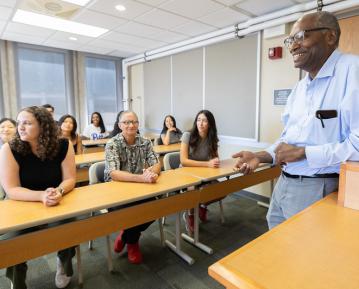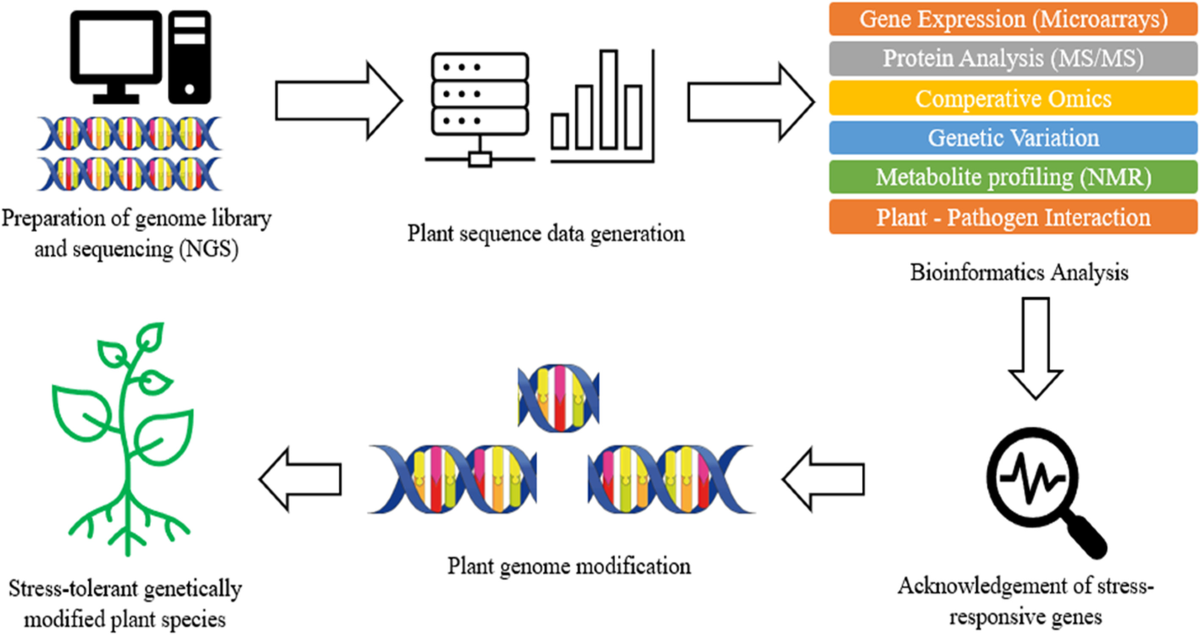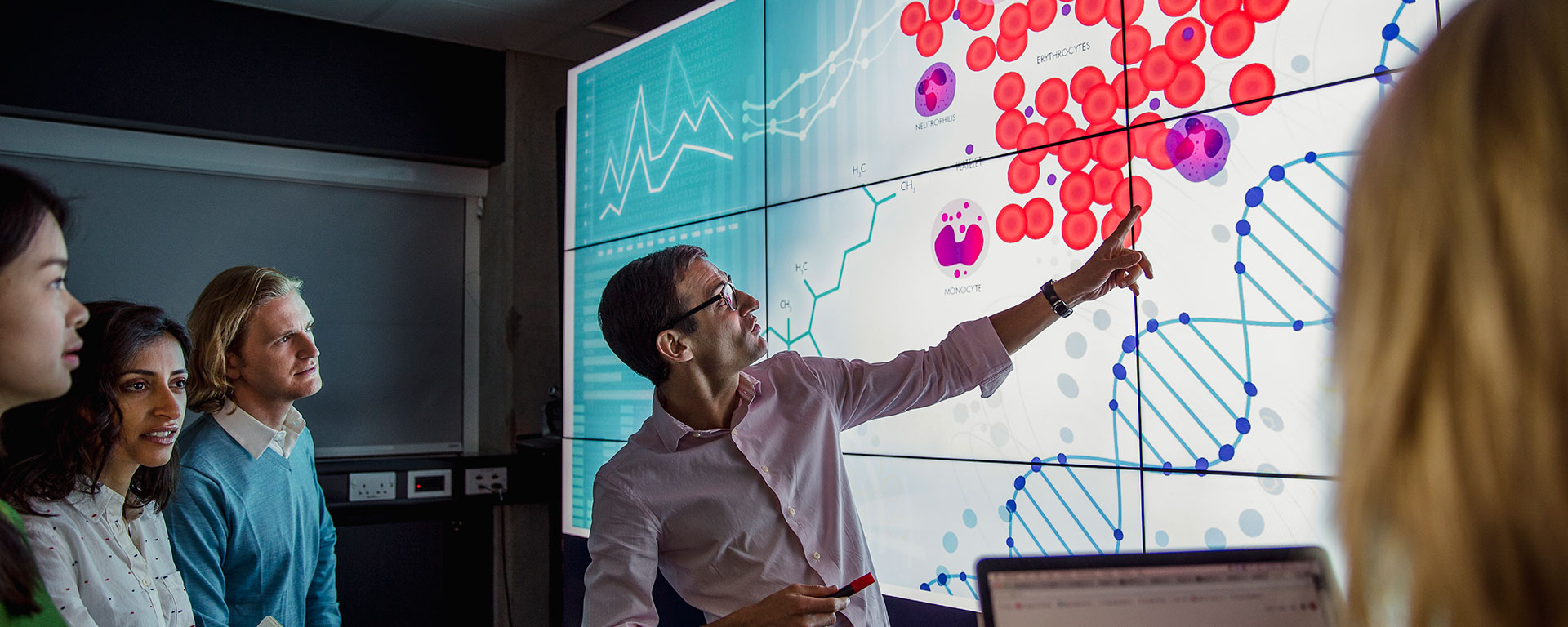Fascination About Bioinformatics Tutor
Fascination About Bioinformatics Tutor
Blog Article
10 Simple Techniques For Bioinformatics Tutor
Table of ContentsThe 7-Minute Rule for Bioinformatics TutorAbout Bioinformatics TutorRumored Buzz on Bioinformatics TutorBioinformatics Tutor - TruthsThe Basic Principles Of Bioinformatics Tutor
Of the overall individuals entailed in the training, 80% were trainees from public higher education organizations, while the staying 20% came from exclusive institutions. To receive a certification of involvement, students were required to go to a minimum of 90% of the total training hours. As an outcome of this demand, an impressive 95% of the individuals effectively obtained their certifications, having not just fulfilled the minimum presence requirements but additionally completed all assigned tasks throughout the training.
During the elevation of the COVID-19 pandemic, especially in between June and August 2020, the job group was tasked with organizing specialized training in bioinformatics. This training was specifically aimed at pupils from the research team Nucleus for Research in Applied Computing at the Federal College of Pará (UFRA) The adaptation to remote understanding systems due to the pandemic produced an opportunity to check out brand-new mentor methodologies and digital tools that enhanced both reach and performance.
To respond to the growing need in the computing and life sciences fields, an advanced training course was introduced in 2020 labelled Intro to Artificial intelligence. This program was designed to offer an obtainable yet comprehensive review of Artificial Knowledge methods, specifically as applied in bioinformatics. The program was accomplished over three months, from October to December 2020, and was delivered completely online through the Google Meet system. This digital layout allowed participation from trainees throughout Brazil, several of whom might not have had the opportunity to participate in in-person sessions.
Bioinformatics Tutor Things To Know Before You Get This
A notable function of this training course was its focus on hands-on understanding. About 50% of the total training hours were dedicated to useful tasks where trainees developed intelligent versions and applications in an array of scientific domains, consisting of genes, molecular biology, and ecological data evaluation. Extensively used devices and structures such as Spyder, Google Colab, Jupyter Notebooks, and Orange were incorporated into the coursework. These platforms enabled pupils to take part in real-time information adjustment, design training, and algorithm trial and error.
Sixty of them were affiliated with various greater education organizations in the state of Pará, while the remaining twenty came from institutions situated in five other Brazilian states. By presenting Artificial Intelligence in a useful and relevant context, the campaign served to connect the gap in between theory and real-world application, supplying students with a strong foundation for future study or work in the area.
The training effort created component of a wider scholastic outreach effort recognized as the Bioinformatics when traveling task. This task has, throughout the years, presented dozens of trainees to the world of bioinformatics and computational biology. The occasions held under this umbrella initiative have Our site occurred across multiple regions and years, as summed up in Table 1 (List of events, places, years, and overall varieties of pupils and trainers)
Several of these groups, initially brought together by their involvement in training events, have actually since gone on to produce independent scientific research in collaboration with regional scholastic organizations. The training not only promoted scientific thinking within the context of bioinformatics but also sparked collaborative relationships that expanded beyond the training setting.
Indicators on Bioinformatics Tutor You Need To Know
The project itself was conceived and organized by MB and RR, who oversaw the preparation and application of each step. Lectures were supplied by a multidisciplinary group being composed of MB, FA, EF, KP, JS, DM, SN, LP, LG, RR, air conditioner, and ih. The very same team, excluding IH and RR, additionally worked as tutors for the useful training components. Financing for the job was offered via the grant 88887.200562/ 2018-00 from CAPES. The writers prolong their gratefulness to every person who added to the realization of this job, whether directly or indirectly, since its creation.
The Federal College of Pará's Office of Research (PROPESP/UFPA) likewise supplied monetary assistance, specifically for the production of the final manuscript. The authors state no business or economic conflicts of rate of interest that can have affected the research. All point of views and analyses expressed in this write-up are entirely those of the authors and do not always reflect those of their respective organizations, the publisher, editors, or reviewers involved in the publication process.

Unknown Facts About Bioinformatics Tutor
From an instructional viewpoint, the training strategy used in the training was deliberately interactive. Classes were conducted in a way that encouraged student participation and conversation, exceeding memorizing memorization to explore how ideas are created, applied in daily life, and tested in academic setups. The training viewpoint concentrated on supporting both solid and battling pupils, supplying individualized assistance, and building confidence through continual mentorship and persistence.

Each group, consisting of approximately 36 individuals, was supported by three coaches-- the majority of whom were postdoctoral scientists with specialized experience. These coaches not only assisted create the group tasks however also promoted their implementation, making certain that each research study question was both pertinent and properly challenging. The goal was to supply a biologically reasonable context that individuals could discover with flexible goals and accessibility to curated datasets.
For added understandings into the method and outcomes of this project-based understanding technique, readers are routed to S1 Text, that includes in-depth summaries of the instructional framework, analysis techniques, and task themes made use of in the training sessions.
How Bioinformatics Tutor can Save You Time, Stress, and Money.
Of the total participants included in the training, 80% were pupils from public higher education and learning institutions, while the staying 20% came from personal establishments. To certify for a certificate of involvement, trainees were called for to participate in at the very least 90% of the complete training hours. Notably, past the trainees that enlisted in the training sessions, 7 experienced trainers got involved in providing the training courses, while 3 committed study teachers collaborated the overall training process. Around 50% of the total training hours were dedicated to functional activities where trainees developed intelligent models and applications in a range of scientific domains, including genetics, molecular biology, and ecological information evaluation. The training not only promoted clinical reasoning within the context of bioinformatics but likewise stimulated joint partnerships that prolonged beyond the training environment.
Report this page